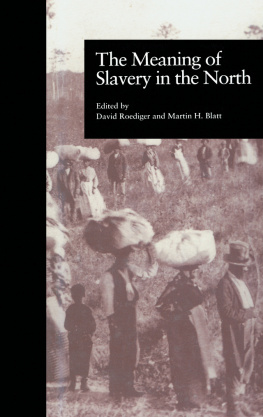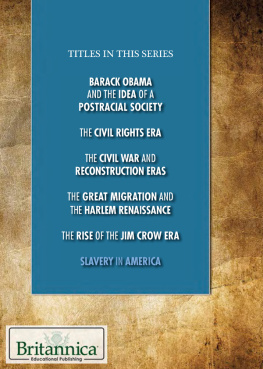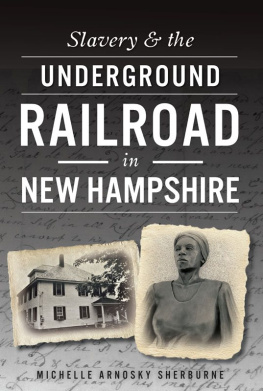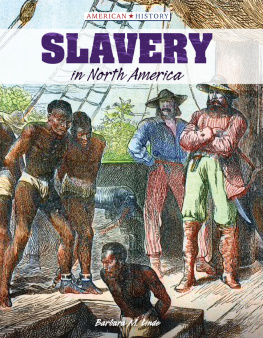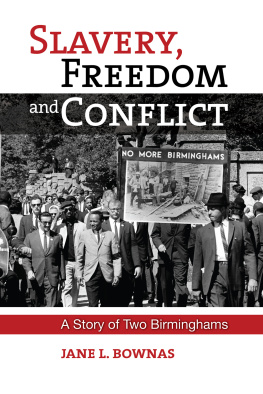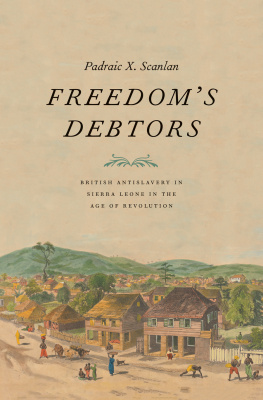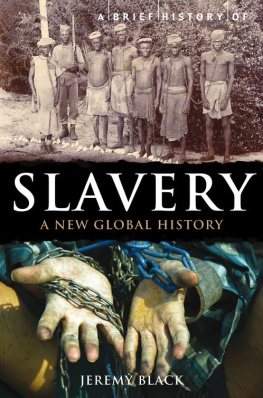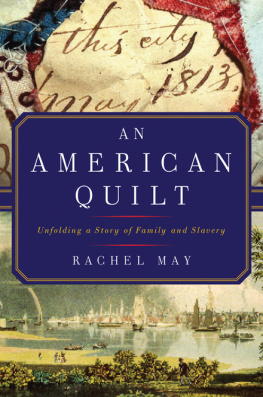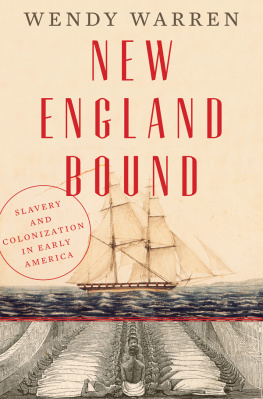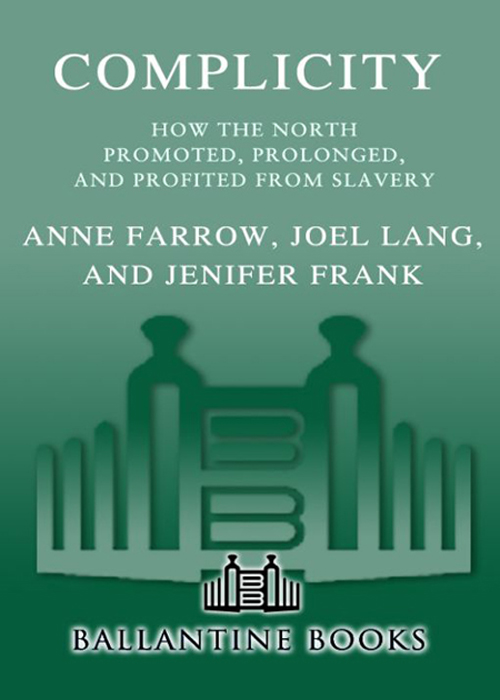

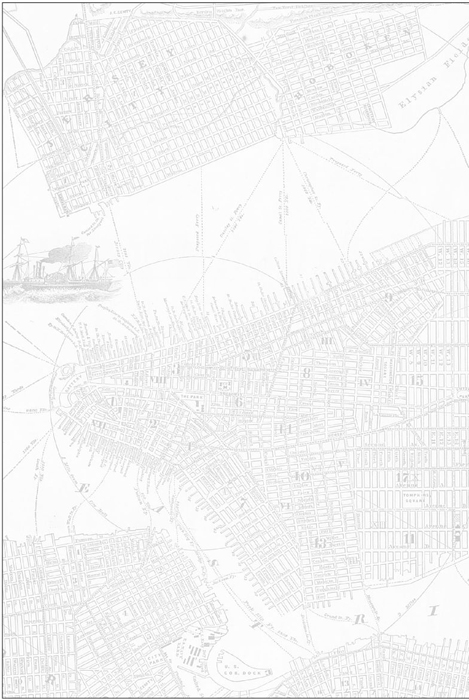
Table of Contents
To the memory of my father, Charles William Farrow,
and the experience of Africa.
I no go forget.
A.F.
To Maxine and Donna, for their generosity
J.L.
To Kenton, Gigi, and Max
(who said of this dedication: You better not just say To my family ).
You mean more to me than a million bales of cotton.
J.F.
To Philip, Jonathan, and Daniel Moeller
C.M.
The Northern slaveholder traded in men and womenwhom he never saw, and of whose separations,tears, and miseries he determined never to hear.
HARRIET BEECHER STOWE The Education of Freedmen The North American Review, June 1879
PRAISE FOR COMPLICITY
This tough-minded book reveals Northern slavery to have been
neither a marginal nor a short-lived institution but a central element
of the regions economy and society.
IRA BERLIN,The Washington Post
This is history worth remembering.... The width and breadth of
the exploitation they describe is impressive.... The hardest question
is what to do when human rights give way to profits. The authors have
clearly shown that historical amnesia is not an option.
San Francisco Chronicle
Here is a book you may not want to pick up but wont be able to
put down. It is history written with the urgency of breaking news, a
journalists ear for the perfect quotation, and an unflinching sensitivity
to the human dimensions of a most intentionally inhuman institution.
Chicago Tribune
Complicity may be an eye-opener for finger-pointing Northerners.
The Virginian-Pilot
This is history at its best... [and] a rich history of slavery in the North
that adds new dimensions to what you might have learned in school.
The Boston Globe
Essential reading.
Library Journal
FOREWORD
by Evelyn Brooks Higginbotham
My first real knowledge of the Civil War and its aftermath came from seeing a photograph of my great-grandfather Albert Royal Brooks. A former slave, Brooks served on the Richmond grand jury convened to consider evidence against Jefferson Davis for treason. Davis never came to trial; he was pardoned in 1868 by President Andrew Johnson. In fact, the only visual record I have of my great-grandfather comes from this extraordinary photograph of him, sitting proudly among the black and white jurors. As a child, and for years thereafter, I wondered why the trial had not occurred and also what my great-grandfather might have felt about it. Later in life, I would come to understand Daviss amnesty from the perspective of a professional historiana perspective far more complex than that of a young girl.
The granting of amnesty was not simply the act of a Southern president whose sympathies ran opposite to those of the many Northerners and Radical Republican Congressmen who sought to see Davis tried for treason and murder. Other Northerners joined Southerners in sending petitions and memorials for Daviss release. The New York Herald and New York Tribune both printed editorials sympathetic to secession and to the fate of Davis. Wealthy, influential Northern men, including Cornelius Vanderbilt, Horace Greeley, and once-radical abolitionist Gerrit Smith, put up the money for Daviss bail. Even more ironic, the fiery black clergyman Henry McNeil Turner, who had served as a chaplain in the Union army, presented an earnest supplication for mercy for Davis. Jefferson Davis himself was never repentant about the war, nor did he ever petition for amnesty, as did thousands of both ordinary and prominent ex-Confederates.
Unlikely alliances and strange bedfellows often create ironic stories. In 1641, for example, the Massachusetts Bay Colony became the first of the American colonies to give legal recognition to the institution of slavery. Its Body of Liberties permitted the enslavement of lawful captives taken in juste warres, and such strangers as willingly sell themselves or are sold to us.
It is little wonder, then, that England looked askance at Americans demands for independence in the early 1770s. The British had published Phillis Wheatleys book of poetry in 1773, while simultaneously chiding the people of Boston for failing to free her from slavery. We are much concerned to find that this ingenious young woman is yet a slave, the British admonished the liberty-loving American patriots, and they also asserted that one such act as the purchase of her freedom, would, in our opinion, have done them more honour than hanging a thousand trees with ribbons and emblems. Remaining sensitive to the happiness of Southern slaveholders, the Commonwealth of Massachusetts never formally abolished slavery, but rather left it to acts of private manumission and the withering effect of court decisions that questioned the legality of human ownership. To the credit of Massachusetts, however, as of the first federal census in 1790, it was the only state in the new republic to register no slaves in its population.
In slave-free Massachusetts, the fight for the immediate rather than gradual abolition of slavery was launched, with William Lloyd Garrisons Liberator in 1831 and the alignment of the New England Anti-Slavery Society in 1832 with the states free blacks in their commitment to immediatism. If New England represented the heart of the antebellum abolitionist movement, it also represented a complex mixture of antislavery sentiment and virulent racism.
The process of black community-building began in the years immediately after the Northern states signaled their complicity in slavery by agreeing to those sections in the Constitution that, in crucial ways, gave tacit support to the peculiar institution. Not coincidently, this era has also been called the first emancipation.
And yet, complicity and complexity went hand in hand. It was in Pennsylvania and New York, both of which gradually emancipated their slaves, that the very first American antislavery societies were formed. The Pennsylvania Abolition Society (PAS) and the New York Manumission Society were both founded in the late eighteenth century by white Northerners of property and political power. These men were the allies, and sometimes the financial backers, of blacks who were in the process of forming institutionsmutual-aid societies, fraternal lodges, schools, and churchesaround which to orient their nascent communities. Among them were such illustrious men as Alexander Hamilton and John Jay, in New York, and Benjamin Franklin and Benjamin Rush, in Philadelphia. In these early years of black community-building, free blacks realized that the racist society of the North also included persons and institutions of good will.
African Americans were careful to distinguish degrees of complicity from blatant disrespect and disregard for the rights of blacks, free and slave. Black leaders in the North attacked a complex cast of characters in their protest literature. The extraordinary black Boston pamphleteer and antislavery militant David Walker denounced Thomas Jefferson for his insulting remarks. Thomas Jefferson, who wrote the Declaration of Independence proclaiming the equality of all men, also wrote of the natural inferiority of blacks in his
Next page

